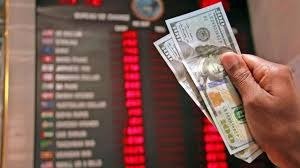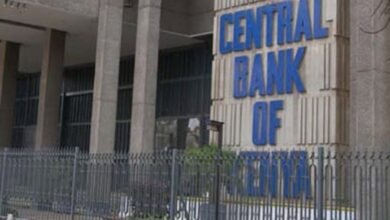
National Treasury Principal Secretary Chris Kiptoo has urged traders to “resume business as usual” as US Dollar lose grip against the Kenyan Shilling.
The shilling has soared to its highest level in nearly 16 years against the US dollar, as local investors and businesses sold their foreign currency holdings following the country’s successful Eurobond sale.
It appreciated by almost 10% in the past eight days, making it the best-performing currency in Africa so far this year.
The rally was driven by increased dollar supply in the market, as Kenya raised $1.5 billion from a new Eurobond issue that attracted strong demand from international investors at $5 billion.
The proceeds of the Eurobond sale will be used to buy back some of the $2 billion of debt that is due in June, easing concerns about Kenya’s ability to repay its external obligations.
The IMF, TDB Support for Shilling
Kenya also received $1.6 billion from the International Monetary Fund and the Trade & Development Bank this year alone, boosting its foreign-exchange reserves.
Also Read: IMF Approves Ksh.150 Billion Loan for Kenya
In addition, foreign investors participated in a local infrastructure bond auction on Wednesday, where the central bank accepted bids for about three times the amount of notes on offer.
This increased the demand for the shilling, as investors had to convert their dollars to buy the local currency debt.
The improved dollar liquidity in the economy has prompted many Kenyans who were holding dollars as a hedge against currency depreciation to sell them and return to normal business activities.
The National Treasury’s Principal Secretary Chris Kiptoo urged currency traders to stop speculating on the shilling and focus on productive sectors.
“The question of dollar scarcity in the economy is no longer there,” he said in an interview on local television.
“Sell your dollars and get back to business and don’t do any speculation anymore.”
What Shilling Appreciation Means for Debt Sustainability
The shilling’s appreciation has positive implications for Kenya’s debt sustainability, because it reduces the cost of servicing foreign-denominated debt.
It also lowers the inflationary pressure from imported goods, such as food and fuel, which account for a large share of Kenya’s consumer price index.
However, some analysts warn that the shilling’s rally may not be sustainable in the long run, as Kenya still faces structural challenges such as a large current account deficit, low export earnings, and high public debt.
They also caution that the global market conditions may change, affecting the appetite for emerging-market assets.
“The shilling is benefiting from a combination of temporary factors, such as the Eurobond sale, the IMF support, and the infrastructure bond auction,” said Samir Gadio, head of Africa strategy at Standard Chartered Plc.
“But these factors may not last forever, and the underlying fundamentals of the economy are still weak.”
On Thursday afternoon, the shilling traded at 145 units against the dollar from the highs of 160 same time last week.





